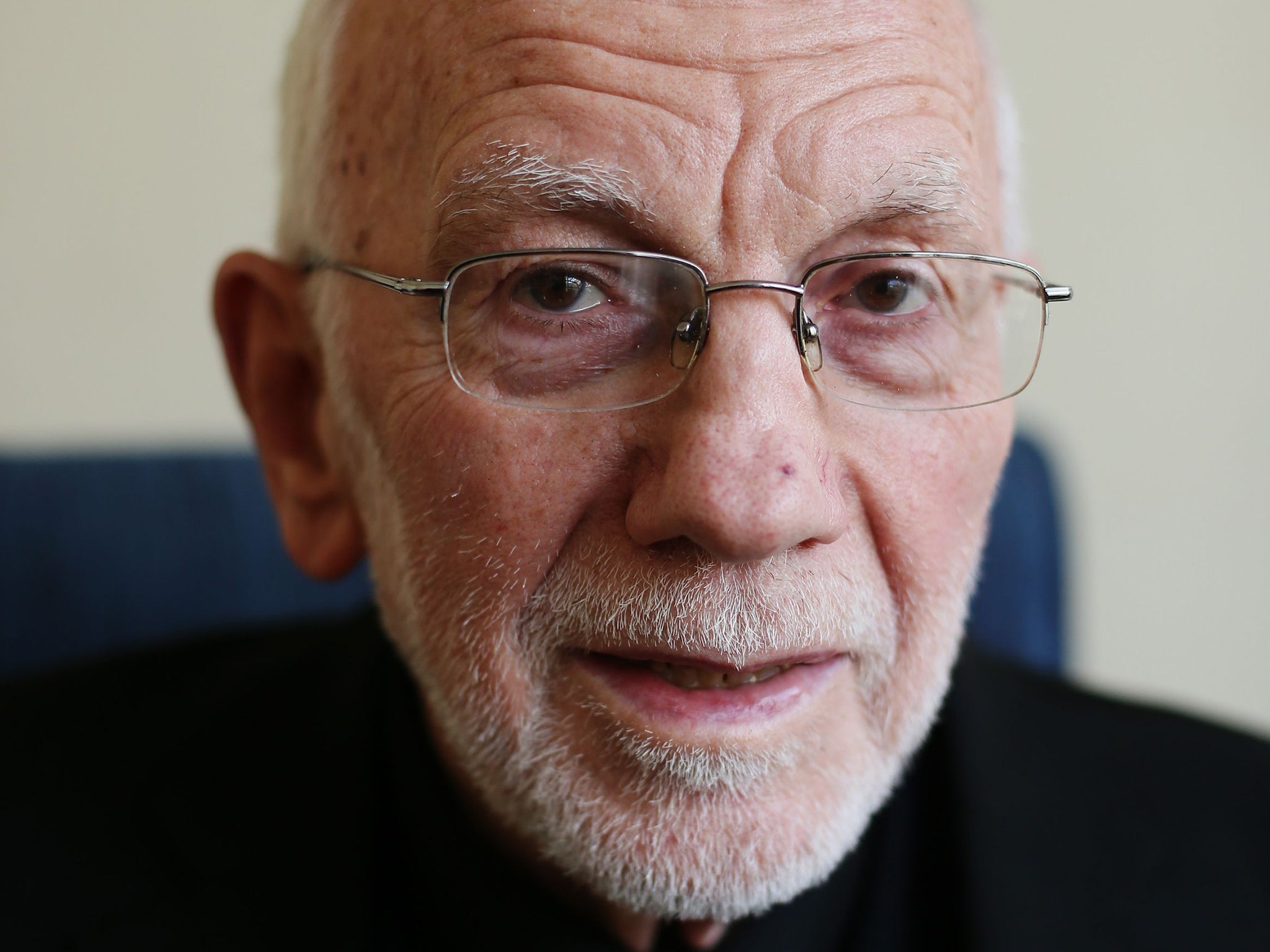Father Gerry Reynolds: Priest respected by both sides during the Troubles who played a vital role in bringing peace to Northern Ireland
His informal style belied a radical vision for a society grounded on friendship between historically divided communities

Arriving in Belfast in 1983, a city crippled by more than a decade of bombs and bullets, Father Gerry Reynolds asked the question: “How do you stop the killing?” It was a year book-ended by outrages at churches. In January, a County Court judge, William Doyle, had been shot dead as he left Mass in south Belfast. In November, republicans had killed three men after indiscriminately opening fire on a Pentecostal service in County Armagh.
Reynolds put his question to Alec Reid (Independent obituary, 25 November 2013), a fellow Redemptorist priest at Clonard Monastery on the fortified “peace line” between the Catholic Falls Road and Protestant Shankill. “He said to me, ‘The only hope is dialogue with one another, because dialogue opens the space for the spirit of God to work in human history’.”
With Reid and others Reynolds became one of the quiet peacemakers who made Clonard the “cradle of the peace process”, hosting clandestine discussions between Sinn Fein president Gerry Adams and SDLP leader John Hume as well as republicans and Protestant clergy. The contacts, which were loaded with risk, would ultimately lead to an IRA ceasefire and the Good Friday Agreement of 1998.
Reynolds’ ambitions were broader, however. His humble, informal style belied a radical vision for a new society grounded on friendship and openness between historically divided communities. His varied ecumenical initiatives included working closely with Presbyterian minister Rev Ken Newell from Fitzroy in south Belfast to bring their congregations together.
When the men received an international peace award in 1999, Reynolds said the “destiny of Christians in Northern Ireland is to help make an end of the Reformation conflict. For the Catholic congregations the promised land is among their Protestant brothers and sisters; for the Protestant congregations it is among their Catholic brothers and sisters.”
As the Troubles raged on, there was scepticism. Dismissed by some as a southern interloper with his feet in the clouds, he was sustained by a deep spiritual discipline. When protesters inspired by Ian Paisley heckled a Belgian cardinal at an ecumenical service in the Anglican St Anne’s Cathedral, Reynolds responded by praying for the DUP leader. He and Newell also broke new ground by attending the funeral of a murdered RUC officer, and later that of a loyalist leader, Ray Smallwood. It has been said he visited more Protestant churches than any Catholic priest in Irish history.
The work was then, and is still, pioneering: it is estimated that only 10 per cent of clergy are involved in any reconciliation projects. “He never pressurised people. When you met Gerry you could hear him listening to you,” said Newell. “He touched tens of thousands of lives in Northern Ireland and opened them up, like a tin opener, opening up hearts.”
Gerry Reynolds was born on a farm in Mungret, Co Limerick in 1935. His father died when he was six and he was strongly influenced by his devout mother and two Redemptorist uncles. One – also Fr Gerry Reynolds – began a “Mission to Non-Catholics” as rector of Clonard in 1948, and a young Gerry recalled him “talking excitedly about the beginning of a change in Catholic/Protestant relations from indifference to mutual respect”.
He was ordained in 1960, the year Pope John XXIII established the Vatican’s first ever office to promote Christian unity. “Being ordained then marked my life in that way,” he told Sue Leonard for the Redemptorists’ magazine, Reality.
Reynolds worked for a time on the order’s publications until being made leader of its community in Limerick, although he found the role difficult and was not reappointed. Reinvigorated by the visit of Pope John Paul II to Ireland in 1979, he immersed himself in ecumenical work at Clonard alongside his many pastoral duties in an area blighted by violence and deprivation. Leading its peace and reconciliation ministry, he described the friendships developed through the Clonard-Fitzroy Fellowship as “cutting the sectarian fibres from our hearts”.
Another grassroots project began on Remembrance Sunday 1994, shortly after the first paramilitary ceasefires, when he crossed the peace line to worship with a nearby Protestant congregation. Since then a group of “Unity Pilgrims” have visited a Presbyterian, Methodist or Church of Ireland service each Sunday.
Reynolds also travelled to Asia and reached out to Muslim, Hindu and Jewish communities: “There is a great task there, for dialogue and mutual understanding for the monotheistic faiths so that we can hammer our swords into ploughshares and spears into pruning hooks,” he said. He also ministered with prisoners and was close to the families of the “Disappeared” victims of the IRA.
Gentle and warm in conversation – “just call me Gerry” – he enjoyed poetry and was centrally involved in Clonard’s hugely popular novena, a modern phenomenon which draws tens of thousands of visitors each year.
Reynolds died at Belfast’s Royal Victoria Hospital. Among the tributes, Gerry Adams hailed him as a “champion of the peace process”. His funeral was fittingly preceded by an ecumenical service.
Gerard Reynolds, priest and campaigner: born Mungret, Co Limerick 18 March 1935; died Belfast 30 November 2015.
Subscribe to Independent Premium to bookmark this article
Want to bookmark your favourite articles and stories to read or reference later? Start your Independent Premium subscription today.

Join our commenting forum
Join thought-provoking conversations, follow other Independent readers and see their replies